
First of all we have to compliment Nilesh Shah because the PMS of his Envision Capital has, over the past five years, heavily out-performed by delivering “10 per cent alpha” returns. This means that the PMS has outperformed the benchmark index by 10% which is quite a commendable achievement.
Unfortunately, Nilesh did not reveal what the AUM of the PMS is. He also did not reveal what the benchmark index is. He also did not reveal whether the portfolio is concentrated or diversified and how many clients the PMS has.
Our own benchmark for evaluating a PMS is Porinju Veliyath’s Equity Intelligence. Equity Intelligence has 500 clients contributing Rs. 330 crore. The portfolio is concentrated with 8 to 10 stocks and is churning out returns at 33% CAGR.
Anyway, let’s take a quick look at Nilesh Shah’s investment philosophy:
Time is ripe to buy stocks now because India is enjoying a “goldilocks moment”:
In the last five years, the macros have never been better than what we are right now. Inflation at 5 per cent, growth at 7 per cent is a fantastic situation to be in. In a way, this is perhaps India’s goldilocks moment, where you have good growth with moderate inflation.
If we look at what the RBI governor has just said in the recent credit policy, it looks like we still have a lot of room to grow and that growth is not going to be inflationary because capacity utilisation is still in that 70-75 per cent band. He actually mentioned a 72 per cent number, which means even for the next couple of years, we could sustain the current growth rate without having any impact on inflation. That is an extremely positive situation to be in. I clearly think this is India’s goldilocks moments.
Don’t be an economist & don’t worry about macros when buying stocks:
When you invest, you should not be an economist. The biggest mistake which everybody makes is to try and be an economist, trying to predict where the economy is headed and how the macros are going to play out. When you are investing, you are buying the macros and that is where you have to look at the merits of each individual company and see if it is available at a reasonable price.
It may not be available to you at the lowest possible price, it may not be a dream price for you to invest in, but even if it is a reasonable price to invest and if you think this is something which could kind of create wealth over the long term, that is clearly the place to be in, that is really the approach to adopt. Of course, it is important to have the economic backdrop, but again you need to look at what is the environment in which individual companies are operating. You would see good times, you would see bad times for the economy but clearly India is a land of entrepreneurs.
Companies are run by entrepreneurs, companies are not run by economies or bureaucrats or politicians. Basically it is run by entrepreneurs and entrepreneurs make all the difference. You could even have a moderate business which is not an excellent business but it could just be that the entrepreneurs and the management team make so much of difference that it finally results into wealth creation.
Look for pockets of quality available at reasonable valuations:
There is always a lot of froth in quality but there would still be pockets of quality available at reasonable valuations, which are available at discount to their peers, which are available at discount to market and those are the areas. Of course, these are very rare situations, very special situations that an individual company could be in, but that is really where a long-term value investor has to step in. Identify the value and ride the value-discovery cycle.
What to look for when buying a stock:
It is important to understand the sector, understand the business in which the company is in, but what is more important is to look at four or five common trades that we look at across companies.
First of all, is this company a growth oriented, is there an aspiration to grow and is there headroom for this company to grow? First of all is the growth orientation.
Two is capital efficiency. The management needs to be very capital efficient. If it can generate the internal cash flows to fund growth, that is a fantastic situation to be in. We always try and look at an asset-light model but as long as even if it is not asset light, but if it can generate cash flows to fund growth, that is the second big thing.
So irrespective of whether a company is a cyclical business or a secular growth business, whether it is rate sensitive, these are adjectives which one can keep using but the net bottom line is – is this a very capital-efficient company and if there is growth, growth leads to better margins, margins lead to cash flow generation which it can invest in its business. For us, growth and capital efficiency are two very big parameters, which we look at, and third, is there any differentiation which this company has?
So on the one hand, we look at business, balance sheet, management, which is a BBM situation. Then we look at the price value equation. Third is to look at the CDQ, which is customer delight quotient. Does this company offer a CDQ to its customers? In the case of a residential development company, CDQ will be basically cost, design and delivery and quality.
Favourite stocks:
Kolte-Patil – top management, low valuations & a latent demand for real estate:
Kolte-Patil is in not so favourite sector, say real estate. We clearly are taking a very contrarian view at this stage. We think that the sector looks good for the next five years. The sector had all kinds of problems that you could dream of, imagine, think, contemplate over the last many years. There is also stress at a very macro level.
But that makes valuations very attractive. When things get difficult, you need to see what is the company’s strategy, what is the company’s response mechanism. And in a business like that, the biggest strength of a company is its balance sheet. If you do not have significant leverage, if you have certain processes to follow, if you try and adopt the best practices, that itself is a very winning combination.
For example, if you look at this company, unlike most real estate guys who would basically take bookings the moment they acquire a plot of land or even when they are in the process of acquiring land but then they cannot live up to their commitments in terms of delivery. Here is a company which says I would start bookings only when I receive approvals and preferably I would start booking when I am at least coming to the plinth level which means then I can meet timelines. I can delight my customer and we have this concept call a CDQ.
Demand for realty cannot be postponed indefinitely:
You cannot postpone demand indefinitely. You could postpone demand for a few weeks, few months, few quarters may be a year or two, but finally every Indian household aspires to own a home, which is better and bigger and that is clearly what creates the demand. If you look at the average Indian household, he is moving up the value chain and India has millions of middle-income households and that is clearly where you need to identify the sweet spot of an individual company.
Mahindra Holidays – great management pedigree & great prospects:
Consumer discretionary stocks are at a sweet spot. Real estate itself is a consumer discretionary. If you have a real estate developer who is basically building residences and quality homes for middle income households, to us that is consumer discretionary.
The last two-three years have not been particularly good for the sector or for the company from a demand point of view. At peak, it was probably adding 20,000-25,000 new members every year, that number perhaps is coming down to about 10,000 to 15,000 a year. But is there potential to have more members? I think yes, because the way we look at it is that every household that buys a car can potentially own a time share or have a holiday.
One, it is an aspirational business. We want to spend more, we want to eat out more and we want to travel more. Second is, with better air connectivity to some of the smaller cities and smaller towns, getting to some of those exotic locations can be easier and convenient that itself can basically be a demand driver. Third, of course, with interest rates coming down, the tendency, the affordability goes up.
And fourth, this is probably one of the best ways to discover India. I mean we all basically go out for vacations but we never think so much of those vacations which are of four to five days duration and if you just kind of be a member here, you probably kind of can then discover India. So there are many drivers here and then, of course, the pedigree, I mean you are becoming a member for 20 years.
There are very-very few people whom you can trust for 20 years. So the pedigree is great. There are not that too many players coming into this business. To that extent the survivors and the incumbents at some point of time will enjoy disproportionate economics. All in all, it is a cash flow positive model, operating cash flows are positive and available at valuations which are reasonable…
Competition from Thomas Cook/ Sterling Holiday is a risk and an opportunity. When you have players getting better and better, it does a lot good to the industry itself. The industry’s credibility gets better and the pie expands. So to that extent, what we are seeing is that there is only change of ownership. The players remain the same, but even if competition gets better, gets efficient, finally the consumer gets even more attracted to be part of the industry and, therefore, the size of the industry expands and then within that, it is very natural for the leader to benefit.
The market gets bigger, the market gets efficient, the market gets better and that itself is a very sweet spot to be in for incumbents in the industry and that is where a player like Mahindra Holidays come in, which is the leader, which has credibility, which has got the pedigree. For them better times are yet to come.
Tata Elxi, Persistent – differentiated business models with niche product offerings:
For both these companies, the genesis of our investment thesis was that both these companies were doing something very differentiated. One was a very early mover in the SMAC space, the other was the company which was delivering technology-led design services.
That’s the niche. Product design and things of that kind. So both these companies basically had very differentiated business models, they had very differentiated offerings.
Though valuations are high, there is still headroom for growth for these companies. They continue to basically offer a differentiated service to their customers. They can be part of the long-haul portfolio.
IDFC Bank – management with a very stable outlook and a differentiated banking strategy led by technology and focus and obsession with cost:
We are excited that it will become a bank, so to that extent, a bank is a far more a stable platform versus just being a standalone NBFC or an infrastructure institution. A bank helps you to be more universal in terms of your offerings, but that is where it is. But beyond that it is clearly the management and the fact that they have a differentiated offering. First of all, it is a management with a very stable outlook and they have seen the cycle.
We love managements who perhaps have seen bad times and have learnt from bad times. IDFC’s management led by Rajiv Lall fits the bill. They have seen bad cycles, they have seen bad times, they have been able to come out of that and, hopefully, they have learnt from all of that. So one is that. Two is their strategy, their banking strategy itself is very differentiated.
It is led by technology and its focus and obsession with cost. The most important thing which they are saying is that our costs are going to be 30 per cent less than the least-cost player in the industry. To me, that itself is basically the silver bullet for IDFC. If they can achieve this in the next five years, I think as a bank, as an institution, as a company it could be a lot more valuable than what it is today.
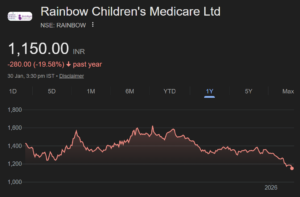
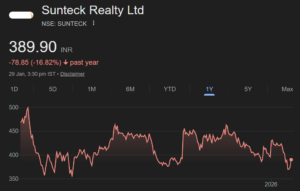
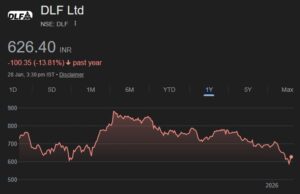
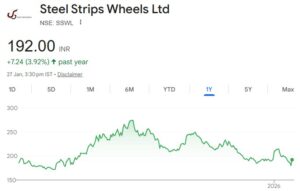
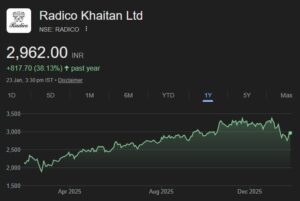
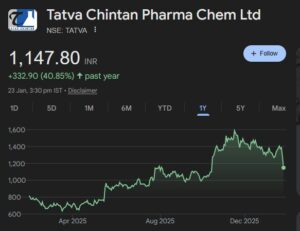
IDFC bank looks to be a better bet but only long term invester.I am invested .Mohindra holiday is a concept stock,but we need to know,how much difficult it is to pay in advance for future holidays in India.So it may test your patience.
It is not in keeping with the trust and following these veterans enjoy , when they recommend one or two names leaving aside more trusty worthy names like Godrej propertie,Oberai Realty etc.They appear blatantly biased.